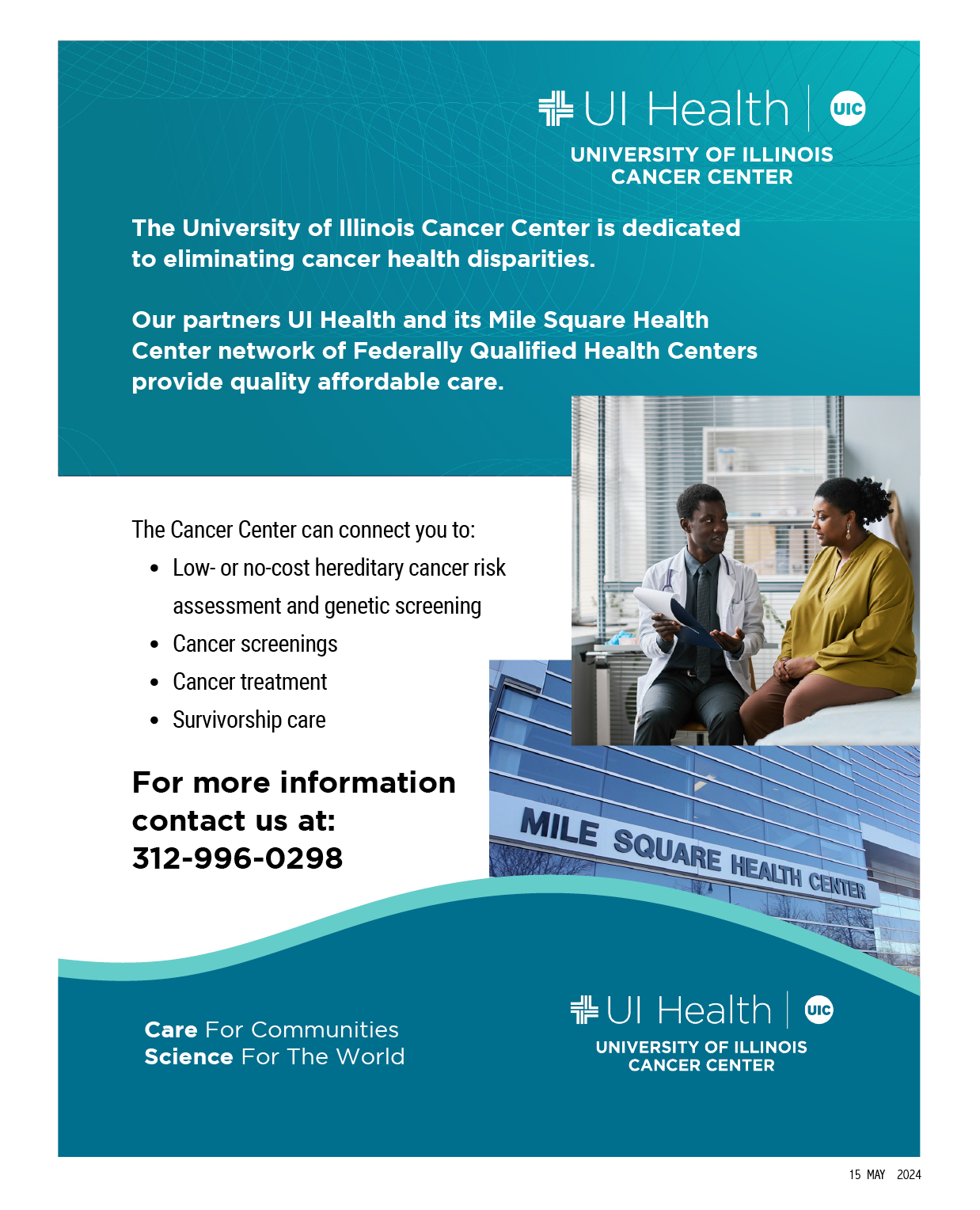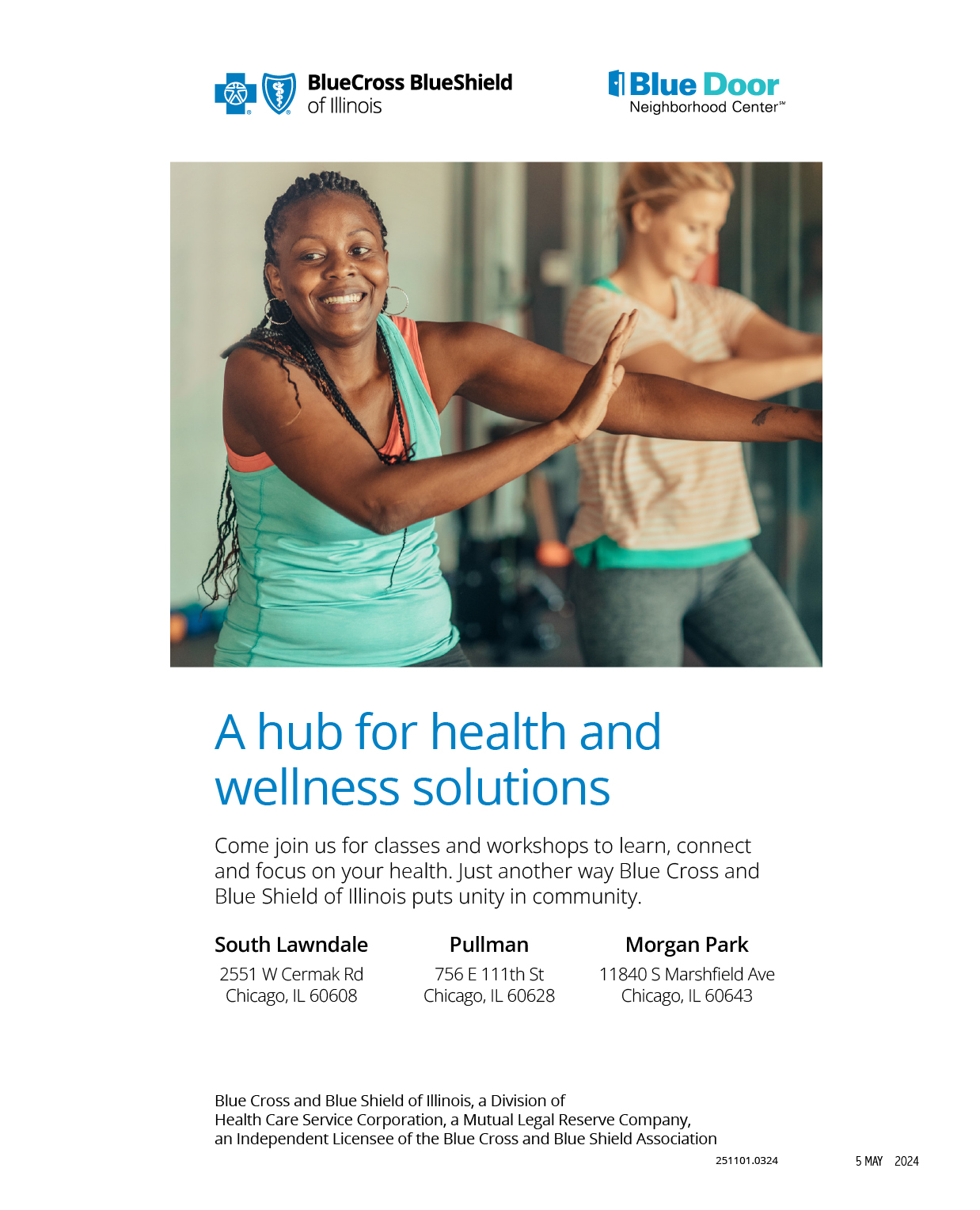
September is National Prostate Health Month, also known as National Prostate Cancer Awareness Month. For African American men, being cognizant of your prostate health and your risks for prostate cancer cannot be relegated to one month out of the year.
According to the Prevent Cancer Foundation (https://www.preventcancer.org), it is predicted that this year, more than 174,000 men will be diagnosed with prostate cancer and more than 31,600 will die from the disease.
If you are African American, you are 60 percent more likely to develop prostate cancer than Caucasian men. If you are older than 65 years of age, you are 65% more likely to be diagnosed with prostate cancer.
These odds increase if you have a family history of cancer (having a father or brother with prostate cancer, or a mother or sister with breast cancer); or if you are obese.
The prostate gland sits just below the bladder and is normally about the size of a walnut (although it can grow to the size of a ping-pong ball or even a tennis ball). Its function is to produce a fluid that mixes with sperm and other fluids during ejaculation.
Prostate cancer can be silent and insidious, producing no alarming symptoms until it is fully present in one’s system, or sometimes it can be discovered with a Prostate-Specific Antigen (PSA) test.
Twenty-six years ago, 48-year-old Virgil Simons had has first PSA test. Cancer was detected and successfully treated. In the process of being treated, Virgil noticed even though he had great insurance coverage, a great doctor, and all the things which should have pointed to him having the best possible care – he still did not get that care. This was his motivation for starting the organization Prostate Net, which is now worldwide.
Although he now resides in Spain, Virgil was born and raised in Chicago. In addition to Prostate.Net, Virgil also became a partner and collaborator with the Chicago-based Thapelo Institute, a group founded by renowned urologist, Dr. Terry Mason and others, including Joseph Harrington, former Assistant Commissioner at the Chicago Department of Public Health and retired Regional Health Officer for Cook County. The stated purpose of the Thapelo Institute is “to educate the public in general and African Americans in particular on strategies for the implementation of positive health behaviors for the prevention of illness and management of disease.” Since 2003, the Thapelo Institute has conducted an annual health and fitness event, targeting African American men.
In 2005, Virgil and Joseph Harrington formed a barbershop initiative, where barbers around the country would talk to their clients about prostate health.
South Side Drive (SSD) spoke to Virgil Simons (VS) via Zoom about this critical disease that plagues so many of our Black men.



SSD: What does Prostate Net do?
VS: We are international, with programs in the United States, of course, as well as Australia, India, Africa, and here in Spain. Generally, we offer awareness and cancer research.
We provide information to help patients and families understand the risks they face from prostate cancer. Once they get a diagnosis, we help them manage and choose the treatment strategies. We counsel patients and help them ask their doctors the right questions in order to get the right answers to make things work best for them.
We also have an international program with Harley-Davidson called “Gentlemen Check Your Engines” that encourages men to spend as much time on their health and their bodies as they do on their cars and bikes.
As far as clinical cancer research/support, we work with universities, hospitals, states, and governments to develop programs that are going to be patient-centric when it comes to cancer research, being certain that the patients are included in every aspect of the research programs.
The stated purpose of the Thapelo Institute is “to educate the public in general and African Americans in particular on strategies for the implementation of positive health behaviors for the prevention of illness and management of disease.” Since 2003, the Thapelo Institute has conducted an annual health and fitness event, targeting African American men.


SSD: Is there a particular age group that’s more susceptible to prostate cancer?
VS: We say, in general, it is the age group of fifty-five and up who manifest the disease most often. But at the same time, we’ve seen men as young as thirty-six contract prostate cancer. So, age in itself is not a determinant.
SSD: If the age group that’s more susceptible is fifty-five, why do you recommend Black men should start screening at the age of 45?
VS: We recommend that Black men get screened as early as possible in order to establish a baseline. Just as you establish a baseline for cholesterol, diabetes, or heart disease, you want to get a baseline that can continually measure what’s happening with your prostate and the PSA levels. And based upon the first PSA test, your doctor determines how often you should have the test. If it’s at a high level, you should do it every six months. If it’s at a low or average level, then it’s okay to have it only once a year.
SSD: What exactly is a PSA test?
VS: It’s a simple blood test to identify whether or not you may have something going on in your prostate which would lead to further evaluation. PSA stands for Prostate Specific Antigen.
In addition to the PSA blood test, we also recommend that a digital evaluation be done. Often there are cancers that might not show up in the blood test, but a doctor can detect them by actually touching and feeling the area to see if there are lesions in place or other things that say there’s a problem. So as much as men resist the idea of a digital rectal exam, it’s an important part of the examination.
Prostate cancer can be silent and insidious, producing no alarming symptoms until it is fully present in one’s system, or sometimes it can be discovered with a Prostate-Specific Antigen (PSA) test.
SSD: What are the symptoms of prostate cancer?
VS: Symptoms can be any of a number of things. Pain, burning pain when you urinate, frequent urination, pain in your hips and joints and your back, abnormal weight gain, there are many, many things. Cancer of the prostate is slow and progressive. It takes seven to ten years to actually produce a noticeable symptom, and that’s the reason you need to be tested regularly, so you can know if something is going on. If you waited that seven-to-ten year period, then when you get tested you might be in the last stage of cancer, so it’s much more difficult to treat and control moving forward.
SSD: Does a man need to be tested if he’s feeling perfectly fine?
VS: Absolutely. Even though there are no obvious problems, we need to check to see if there are latent problems that we don’t know about. He may feel fine, but his PSA may be elevated beyond normal levels.
SSD: What numbers are considered normal for PSA?
VS: The normal PSA should be in the range of zero to 2.5. Anything above 2.5 is cause for concern.
SSD: So high PSA’s point to prostate cancer?
VS: Not necessarily. PSA does not define the cancer. A high PSA means something is going on in the prostate gland and it needs to be looked at further. If it’s high enough, the doctor will do a biopsy. That’s when they take a piece of tissue out and look at the tissue. The tissue will tell them whether you have prostate cancer or not and what stage the cancer is at.
SSD: Is there anything a man can do to prevent prostate cancer?
VS: He can make the same lifestyle changes he would make to prevent any cancer. Cut out smoking, eliminate fatty foods, cut down on red meat, and reduce your weight if you’re overweight.
And if you contract prostate cancer and are successfully treated for it, it is important that you maintain the same healthy lifestyle to prevent the cancer from returning.
 Editors Note:
Editors Note:
Ranoule Tatum has served as a Health and Wellness program manager of Real Men Charities’ prostate cancer awareness and screening work, which started with Dr. Mason and Joe Harrington in 1999. A screening at a Real Men Cook Father’s Day event motivated his early screening. As a survivor since 2001 he continues to represent RMC and his individual initiatives for prevention, screening and treatment to save lives. We hope our readers will share this article with all the men you know, especially those 45 and older. And please visit prostate.net often for information on keeping your prostate healthy.






